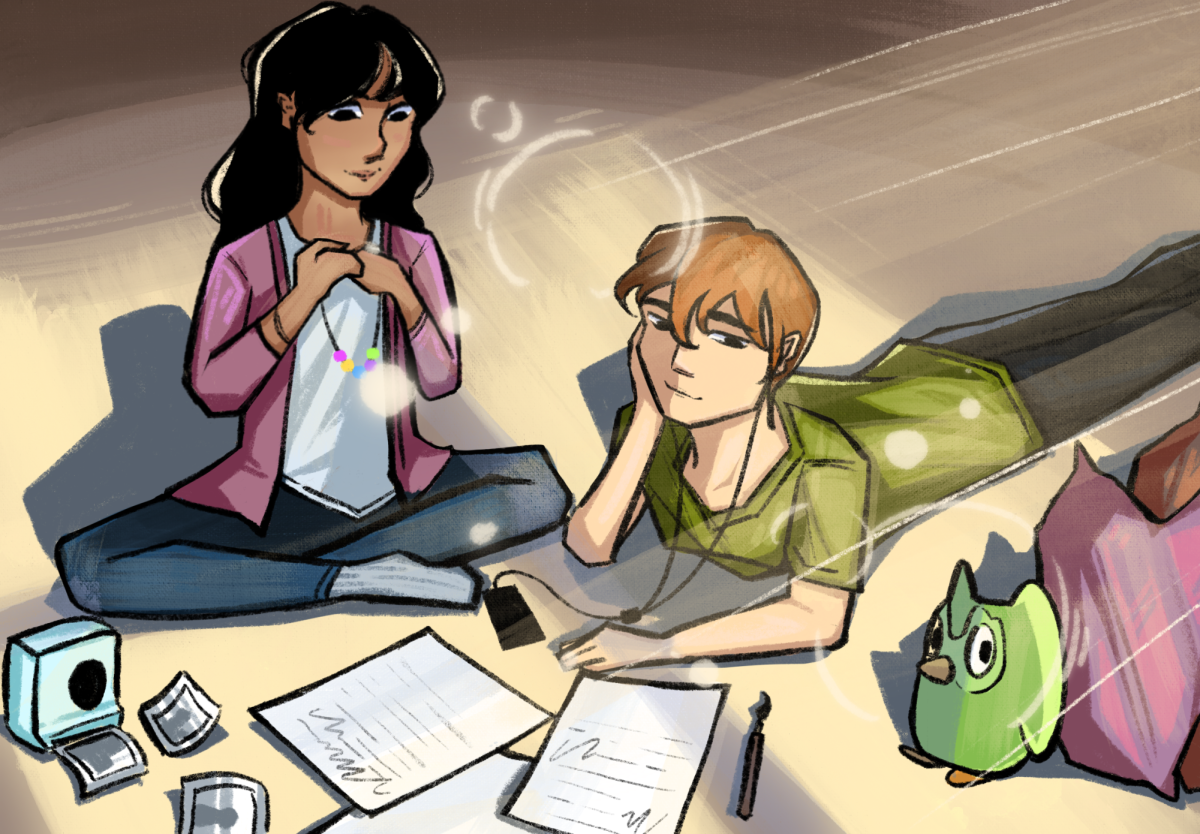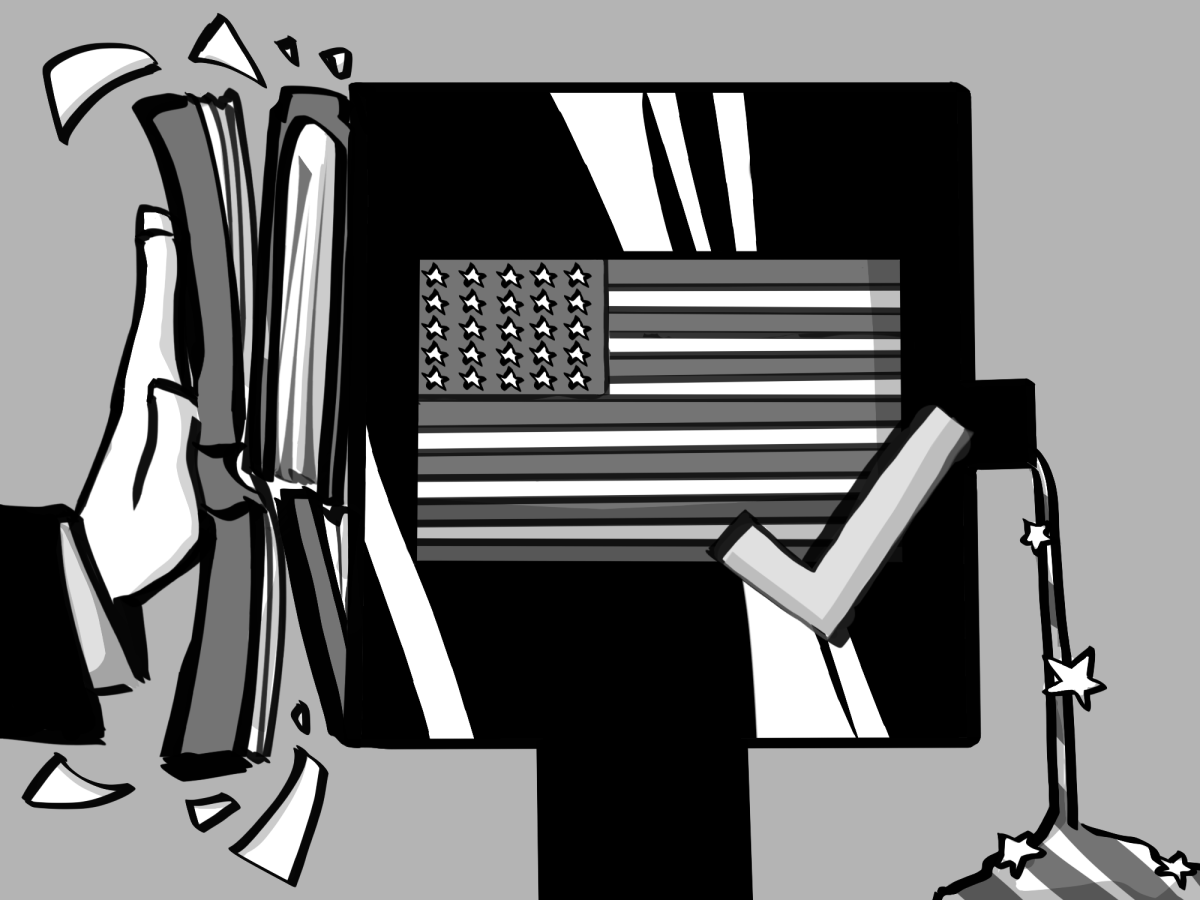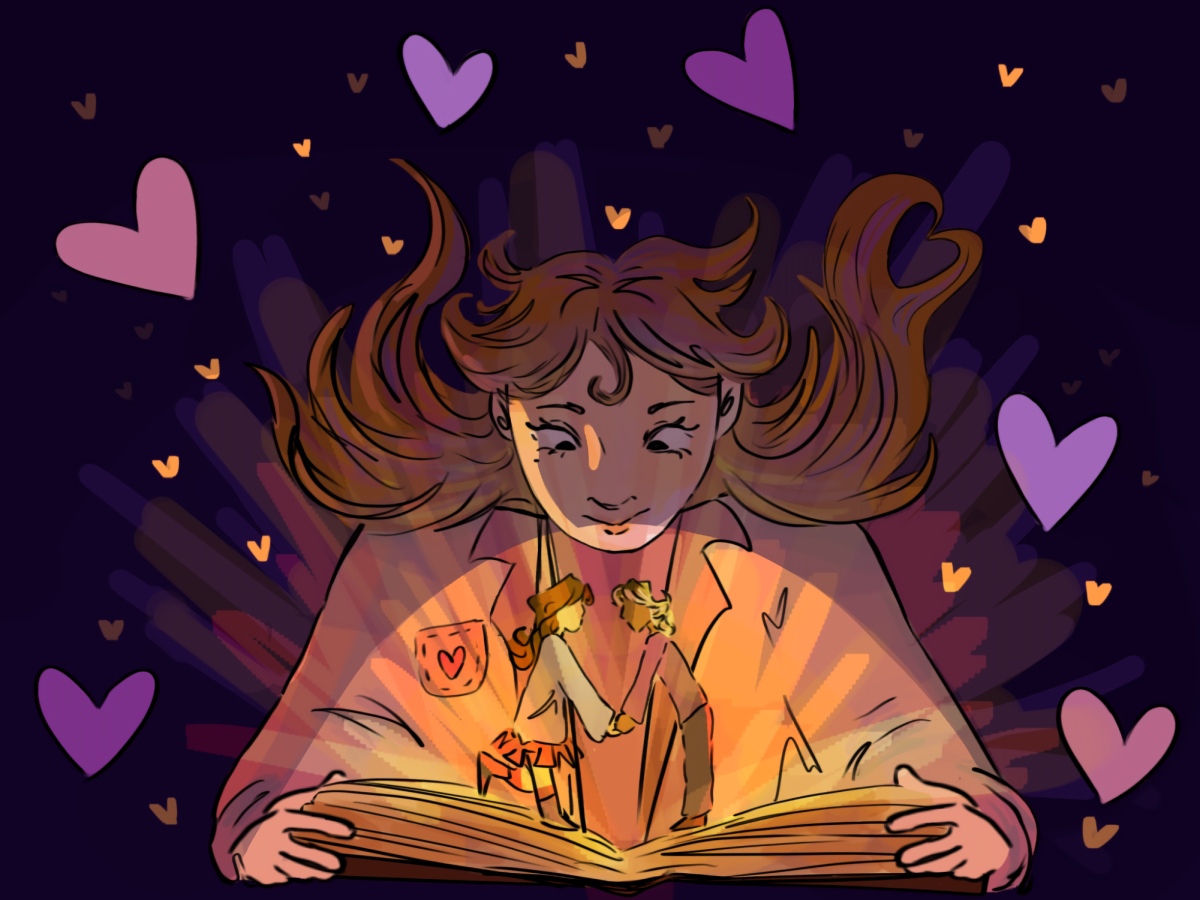On Aug. 29, Sabrina Carpenter released her seventh studio album, Man’s Best Friend. From its lewd images to perceived misogyny, controversy has dogged it from the beginning. Nevertheless, Carpenter has made light of the criticism much like the album pokes fun at her own lifestyle and the people who shape it. Exploring genres from country to neo-disco to soul, she blends derision and confidence to illustrate complex choices regarding relationship drama and life under the spotlight.
The release comes a year after Carpenter’s breakout album Short n’ Sweet, but despite the proximity in both time and tone, Man’s Best Friend represents the sardonic resignation that follows artless determination. Overall, Carpenter’s visceral imagery paints the despair of a strong-minded modern woman in technicolor. Singles “Manchild” and “Tears” mourn the one-sided effort of relationships marked by scorning abandonment, over-reliance, and total lack of communication.
Music production from Jack Antonoff and John Ryan also accentuates Carpenter’s cheeky pessimism. The chorus of “My Man on Willpower,” in which she laments that her partner “fell in love with self-restraint,” builds so powerfully that listeners feel her expectations fall apart, while the deceptively upbeat backing track of “Nobody’s Son” echoes the positivity with which a bereft Carpenter covers her bleak worldview.
“I know how it looks, I know how it sounds / Least we’ll give them something to talk about,” Carpenter sings in her most straightforwardly expressive song, “We Almost Broke Up Again Last Night.” Describing a relationship always on the rocks, her tone balances the anger that sustains the cycle with wry shame at both herself and her partner. She uses over an octave of her range to give simple lyrics nuance and weight, and her brutal honesty fits an elaborate picture of her life into three minutes of a steady and soaring melody.
The album’s wide variety of genres also portray Carpenter’s multifaceted persona. “House Tour” utilizes bouncy 80s pop to show her self-possession in full force, while final track “Goodbye” best represents humanity’s mess of contradictions, toggling the unforgiving and pained parts of her character through a smooth mix of country and soul as she tells an unappreciative ex, “Did you forget that it was you who said goodbye? / So you don’t get to be the one who cries.”
However, songs like “Don’t Worry I’ll Make You Worry” might remind listeners of the outcry against the album — specifically its cover, which depicts Carpenter kneeling while a man holds her hair. Fans and media outlets accused her of negatively influencing children, demeaning women, and promoting domestic violence, but the album’s narrative criticizes that mindset; the eleven o’clock number warns a potential partner that she’ll always be one step ahead. Even then, control over her choices has long been part of her image, and she makes it clear from the first song that no one will speak for her.
Between elaborate riffs, acidic wit, and her knack for summarizing every brand of dissatisfaction, each track on Man’s Best Friend gives Carpenter’s vivid voice a chance to shine. Her drive makes her a force to be reckoned with, but her craft’s bulls-eye accuracy makes her an artist to remember.



























































